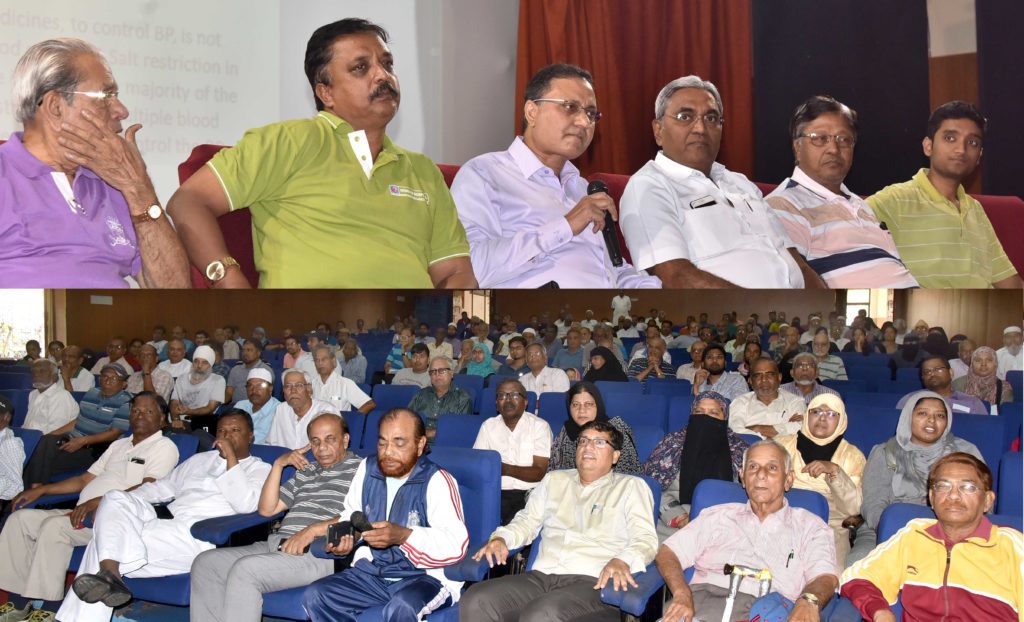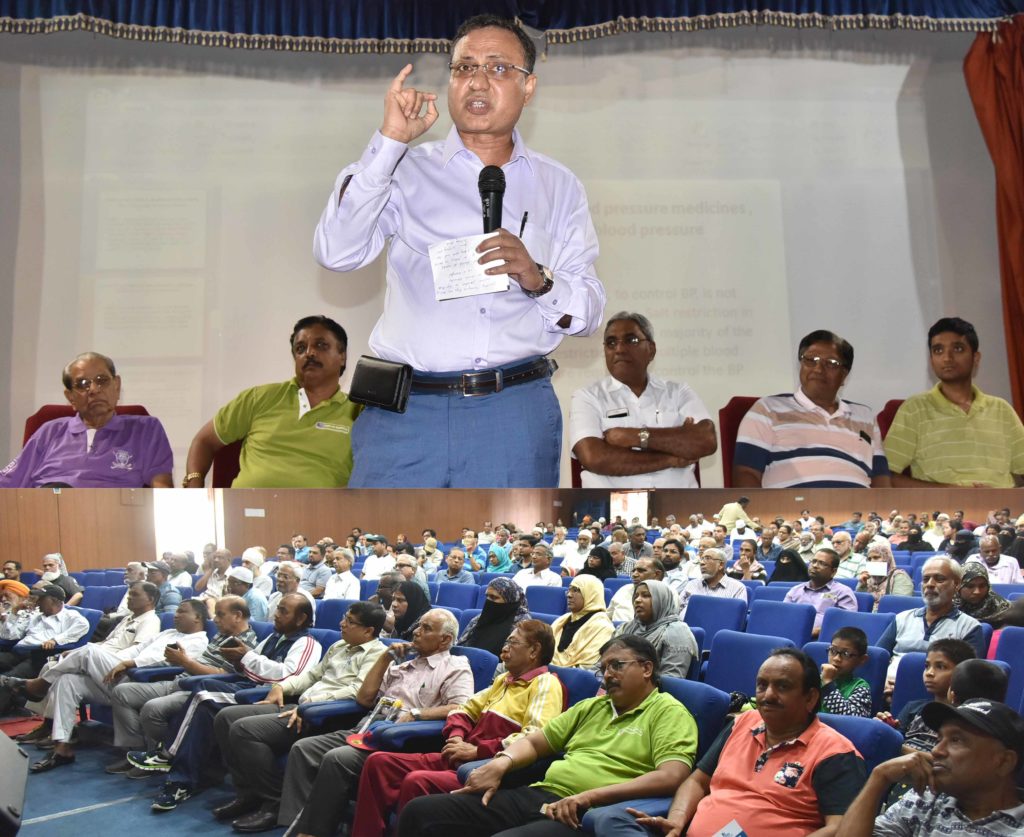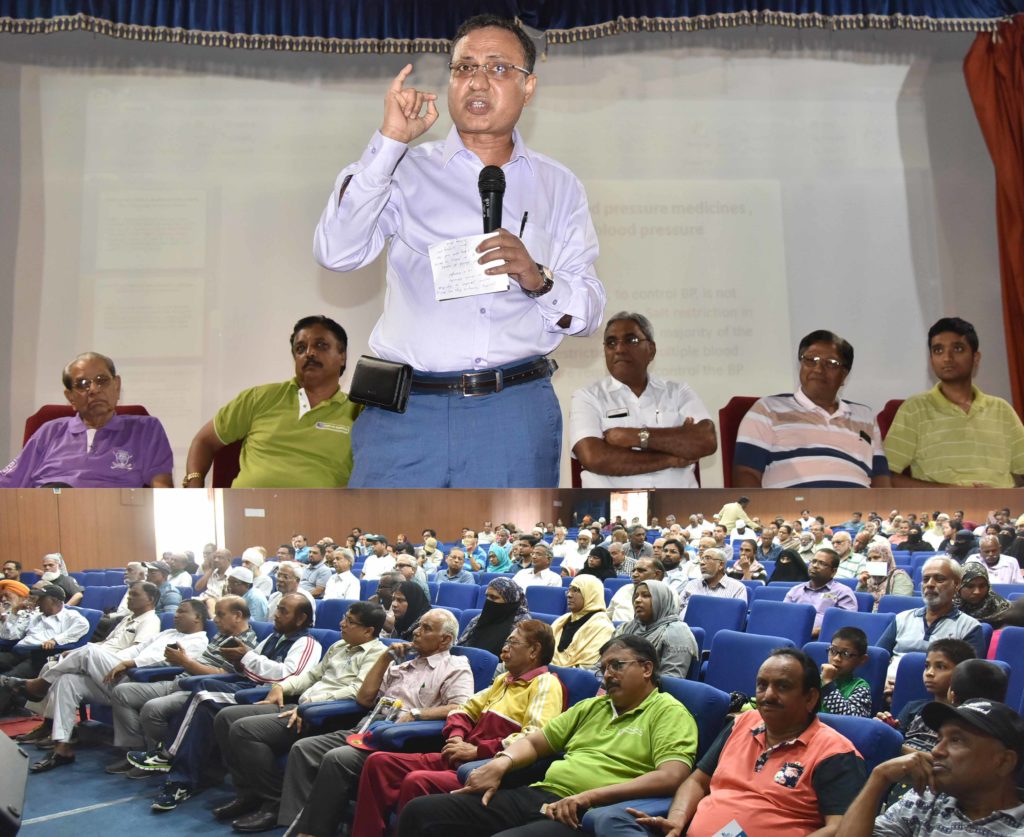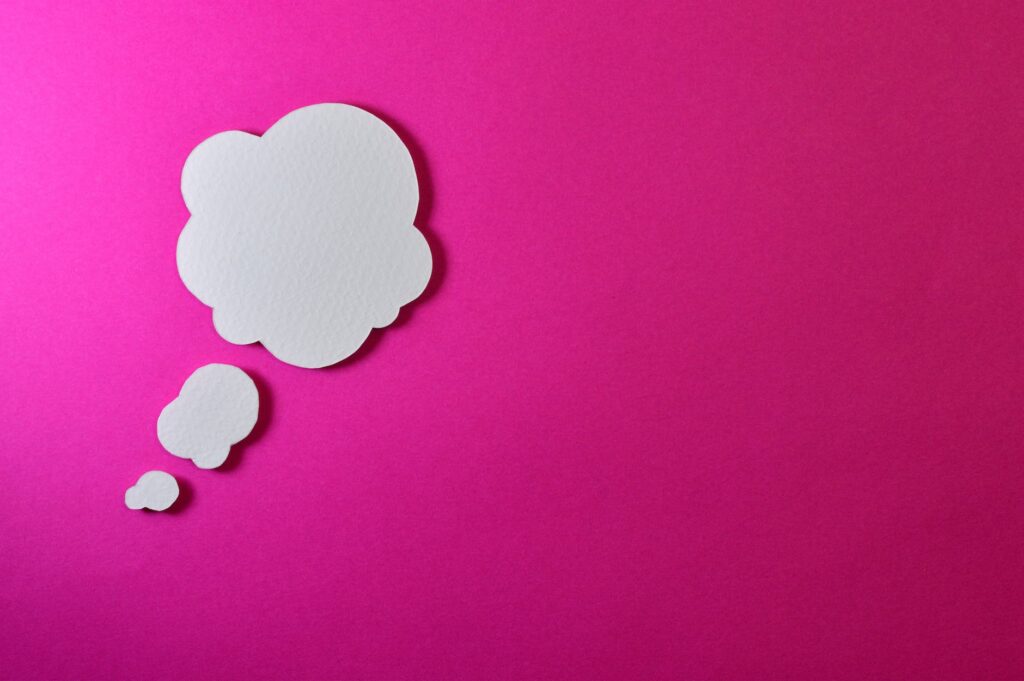Dr. Tarun Kumar Saha, Sr. Consultant Nephrologist & Transplant Physician, Apollo Hospitals, delivered his speech today. He spoke about kidney problems for the Public Garden Walkers’ Association (PGWA), monthly health lecture. His lecture on ‘Kidney Diseases – Myths & Facts’ on Sunday at Public Gardens was attended by many people. People listened to him with full concentration and they got benefited by the knowledge, he provided. Henceforth, inhandwriter feels good to publish this kidney care article story for more awareness.
Kidney is a silent killer, being aware helps!

The Kidney disease is generally silent until it attains the final stage, stage – 5. There’s only way that helps is to diagnose early. It is highly recommended to undergo annual blood and urine tests to identify the problems if any. Annual tests even for healthy persons can be beneficial. If kidney problem happens to be found in any person then they need to promptly get the treatment available. By detecting the problem clearly doctors can arrest the progress of the kidney disease. Though Diabetes is considered to be the commonest cause of kidney failure but anyone can become victim of the disease. So, it is better to take precautions through annual tests for kidney problems.

People who have high risk of chronic kidney disease are:
- Diabetics
2. High Blood Pressure
3. Above 60 years of age
4. Severe obesity
5. Family history of Kidney disease
6. Previous history of stone in the kidney, acute kidney injury
7. Person taking frequent pain killers
Origin (higher prevalence in people of African, Hispanic, Aboriginal and Asian origin)
Facts to understand Kidney Disease Misconceptions:
There are several misconceptions and myths about kidney disease in the mind of common people. Some facts to address them.
Myth 1) Kidney Diseases is Rare.
Fact 1:
Kidney Disease is not uncommon. In America one in seven persons is suffering from some kidney disease. In India the frequency is likely to be higher due to higher frequency of Diabetes.
Myth 2) My Serum Creatinine level is slightly higher than normal, but I am perfectly well, so there is nothing to worry about.
Fact 2:
Slightly abnormal Serum Creatinine e.g., 1.5 mg/dl means in both kidneys 50% function already lost. Aggressive treatment with control of BP with suitable drugs, diet control, avoiding dehydration, and regular monitoring. Kidney disease symptoms if not found then proper diet will help to retard the progression to dialysis stage.
Myth 3) Once a person develops a kidney disease, he or she is likely to require dialysis.
Fact 3:
Majority of chronic kidney disease patients progress slowly if BP is controlled. Proper diet by avoiding kidney toxic drugs helps. Prompt treatment delays the need for dialysis and prevents the complication and death of the patient.
Myth 4) Kidney Patients are not supposed to take protein in diet
Fact 4:
Kidney patient should avoid high protein diet. They can take normal or low protein diet in case there is not suffering from malnutrition.
Myth 5) Kidney patient should not eat tomato
Fact 5:
Only people with stone in the kidneys should avoid tomato seeds. If potassium is not high, tomato can be taken by all kidney patients.
Myth 6) Kidney patient should take less water
Fact 6:
Normal Healthy Person should take approximately 4 litres of water in 24 hours. However in extreme hot and dry condition, water intake should be increased as situation demands. However, once someone develops kidney disease and swelling of body, then only water intake needs to be reduced. No one can tell any fixed amount for them, it depends on the urine Volume of the patient.
Myth 7) Any person who is taking blood pressure medicines, it will automatically control blood pressure.
Fact 7:
Only taking medicines to control BP, is not enough. Salt restriction in diet is equally or more important. In majority of the patients, both Salt Restriction and blood pressure medicines are required to control the BP.
Myth 8): Stop BP Medicine, once BP is controlled.
Fact 8:
In majority of the cases, BP medicines need to be taken lifelong. Although dose adjustments or drug changes are needed by your Doctor from time to time.
Myth 9): BP should be checked by doctor at Hospital or Clinic
Fact 9:
Hospital or clinic BP can be erroneous due stress in the environments. Hence BP should be recorded preferably at home by self or family members with modern automatic BP machine. BP also needs to be checked at different time of day or night to detect diurnal variation. In some patient BP needs to checked in both supine and standing posture to check for any postural change in BP.
Myth 10) Doctor’s visit and investigations should be done whenever patient develop any symptom.
Fact 10:
Irrespective of symptoms patients should visit doctors and do regular investigations to know whether blood parameters are in control or not. Patients or their family members should know the reports also.
Myth 11) Good food will improve low haemoglobin and strengthen bones in kidney patients
Fact 11:
Kidney produces few essential hormones/enzymes, one of them is essential to increase haemoglobin, other is needed to activate Vitamin – D. These Hormones/Enzymes needs to be supplemented to improve haemoglobin and improve calcium level and give strength to the bone. Sunlight alone or dietary calcium is not enough to active Vitamin – D in kidney patients.
Myth 12) Only Children need vaccinations
Fact 12:
All kidney patients need vaccination against Pneumonia, Influenza, Herpes and Hepatitis B Virus.
Myth 13) Once Dialysis is started, Dialysis should be continued lifelong.
Fact 13:
Dialysis is a replacement treatment for End Stage Kidney Failure. If kidneys cannot recover i.e. kidney is damaged due to Chronic progressive disease, then a replacement treatment is in the form of either dialysis or Kidney Transplantation. This has to be done to remove the toxins and fluid from the body to sustain life. In case, Kidney failure occurs due to reversible disease like acute kidney injury, the kidney can recover and dialysis is needed on temporary basis. There is nothing wrong in the machine, that once somebody is attached to the machine, he or she requires dialysis lifelong. It is the nature of the diseases i.e. “end stage kidney failure” for which dialysis is advised lifelong as a replacement therapy.
Myth 14): Once dialysis is started, patient cannot survival beyond few months.
Fact 14:
Now a day the survival of the dialysis has improved dramatically in our country also. Majority of the patients are surviving more than 5 years on dialysis. One needs to follow the advice of qualified Nephrologists and do dialysis in a set up which follows the international standards of Dialysis Guidelines.
Khalid M Raza





